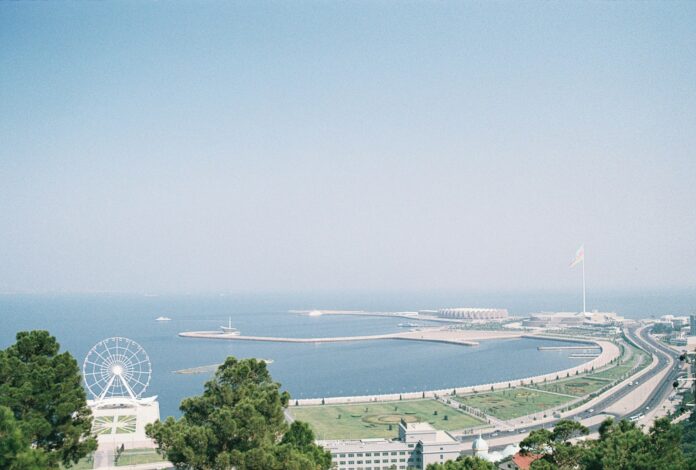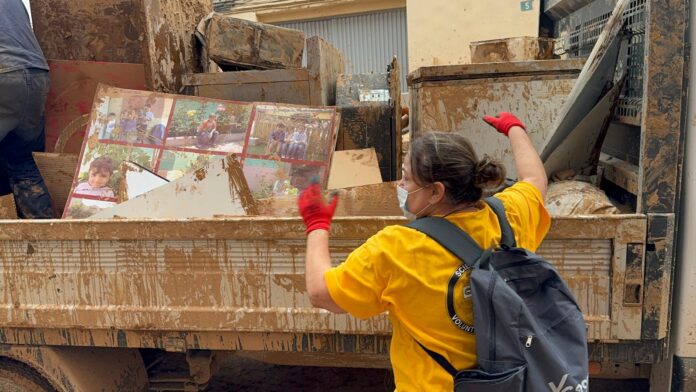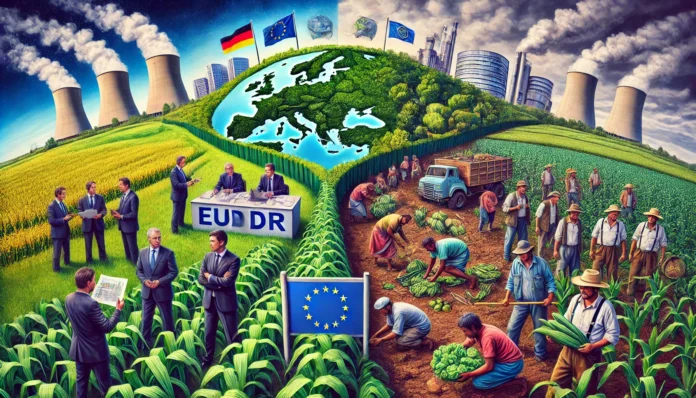Sigrid Kaag updated ambassadors on the implementation of resolution 2720, adopted last December, which established her mandate following the brutal 7 October Hamas-led attacks on Israel and the start of hostilities in Gaza.
She was also tasked with establishing a UN mechanism for accelerating the provision of humanitarian relief consignments to the enclave, operationalized and managed by the UN Office for Project Services (UNOPS).
Supply routes established
Ms. Kaag said “the 2720 Team” has continuously engaged on access issues, addressed obstacles, and proposed solutions to enable assistance by all aid partners, including the UN agency that assists Palestine refugees, UNRWA, which she called the “backbone” of humanitarian operations in Gaza.
She recalled that 11 months ago, the enclave was largely cut off from most of its supply lines, with all but one access point closed.
Despite the complex situation, her mission has negotiated and strengthened supply lines and systems, as well as additional routes, in efforts to facilitate, accelerate and expedite aid flows in a sustained and transparent manner.
These routes cover supplies from or via Egypt, Jordan, Cyprus, the West Bank and Israel.
Humanitarian aid goals unmet
However, Ms. Kaag said systems in place today are not a substitute for the political will required to reach civilians in Gaza and respond to their needs.
“Effective humanitarian operations require the right quality, quantity, and a broad range of goods to meet the daily needs of civilians in Gaza. That goal is not being met,” she said.
Additionally, ongoing hostilities across the Strip, the breakdown of law and order, and the looting of supplies are significant impediments to UN efforts to distribute assistance there.
Humanitarians also face denials, delays and lack of safety and security, as well as poor logistical infrastructure.
UN Senior Humanitarian and Reconstruction Coordinator, Sigrid Kaag, visiting the Nasser Medical complex in Khan Younis, Gaza (file).
Lives at stake
Ms. Kaag said “this continues to hamper relief operations despite recent approvals provided for trucks, satellite phones and other equipment,” and engagement on these issues is ongoing.
She said “commitments and intentions need to be translated into tangible actions on the ground”, warning that “any delay in implementation comes at direct cost of human lives.”
Areas for action
In the meantime, her mission continues to focus on securing access for a diverse range of goods from the humanitarian and commercial sector, highlighting critical areas.
“Modest progress in select areas, such as waste and sewage management, has been made. However, this does not address the totality of the need. For example, cash, prepositioned fuel and hygiene items are urgently needed,” she said.
Furthermore, the scope of humanitarian items allowed entry remains too restricted, she added, while the UN also urgently needs the entry of further vital security communications and tracking equipment.
Implement agreed protocols
Ms. Kaag said a new Joint Coordination Board is now operational but noted that “recent security incidents, including shootings at humanitarian convoys, are unacceptable and demonstrate that agreed protocols and procedures still need comprehensive on-time implementation.”
She also hailed the recent medical evacuation of 251 patients and family members to the United Arab Emirates – the largest from Gaza to date. Yet over 14,000 patients still require specialized medical treatment outside Gaza, showing that much more has to be done.
Recovery cannot wait
Stressing that “humanitarian assistance is only a temporary pathway to alleviate suffering”, Ms. Kaag upheld that a comprehensive, just and lasting peace can only be realized through a two-State solution between Israelis and Palestinians.
“In this light, the recovery and reconstruction of Gaza should not wait,” she said, emphasizing the need for education, healthcare, housing, in addition to establishing governance and security arrangements.
“The UN’s position is clear,” she continued. “The Palestinian Authority must resume its full responsibilities in Gaza. Prime Minister (Mohammed) Mustafa’s cabinet has developed comprehensive plans to restore local governance, security and re-establish the rule of law.”
Relatedly, international planning efforts by the UN, the European Union, the World Bank and others are ongoing in support of the Palestinian Authority, she said, and her mission has developed financing options for the international community to consider.
Mechanism up and running
Meanwhile, UNOPS is committed to supporting Ms. Kaag’s mandate, Executive Director Jorge Moreira da Silva told the Council.
He said the UN mechanism has been running a database covering humanitarian aid consignments into Gaza that has been operational since May and is publicly accessible.
So far, 229 consignments have requested clearance and 175 have been approved, 101 have been delivered, 17 are pending clearance, and 37 have been rejected.
This translates into more than 20,000 metric tonnes of humanitarian aid cargo delivered, including food and nutrition, shelter items, water and sanitation (WASH) supplies and medical aid.
Jordan aid corridor
“The consignments were primarily delivered through the Jordan corridor, the direct route from Jordan to Gaza that was formalized and regularized under the mechanism to provide much needed predictability and regularity and to address the backlog challenges that accompanied convoys undergoing multiple inspection and transloading points,” he said.
He explained that humanitarian health consignments delivered via this route pass through a single inspection point in Jordan and a single transloading point in Gaza. Prior to the UN mechanism, there were three inspection points and four transloading points.
A smaller portion of the consignments was delivered through the Cyprus corridor – “a vital supplementary route for delivering humanitarian aid to Gaza” which “is not intended to replace or divert attention from existing land or sea corridors, but rather to enhance overall capacity.”
Confidence-building and transparency
He added that in response to donor requests, UNOPS stands ready to address current logistical challenges for the Cyprus corridor “by offering an end-to-end solution ensuring the coordinated, efficient and transparent delivery of aid.”
To support the regularization of the corridors under the UN mechanism, UNOPS has deployed 14 international monitors to Cyprus and Jordan who verify the humanitarian nature of each consignment, facilitate approval for the shipments to proceed to Gaza, and track the journey from point of origin until handover to the final consignee in Gaza for onward delivery.
“This very mechanism fosters confidence building among all and provides transparency, informing all of us that what was sent to Gaza indeed make its way to its final destination,” he said.
Regarding consignments that are not permitted, the UN mechanism always requires a justification.
UNRWA continues to offer support to people in Gaza.
Allow more aid
Mr. Moreira da Silva said UNOPS alongside Ms. Kaag’s Office continues to call for more items and consigners to be allowed to enter Gaza.
“Eleven of our international monitors are also ready to deploy inside Gaza, in order to reinforce this important verification and tracking mechanism as an additional enabler of our collective efforts to accelerate and increase the amount of humanitarian aid reaching the civilian population in Gaza,” he said.
‘Vital lifeline’ from Egypt
He then turned to the Egypt corridor, which has served as “a vital lifeline” for delivering aid to Gaza since the conflict erupted.
UNOPS is working closing with the Egyptian authorities to fully integrate the route into the mechanism and a team will be in Cairo this week to finalize the process.
“Once completed, the 2720 mechanism will provide a comprehensive real-time overview of all humanitarian cargo entering to Gaza from every supply route. This will enable better prioritization, tracking and monitoring of relief efforts right up to the point of delivery,” he said.
Supporting all routes
He told the Council that UNOPS has committed to support the full operational capacity of each corridor.
The Office is procuring 280 trucks for the Jordan route, in addition to constructing 10 additional warehousing spaces for the Jordan Hashemite Charity Organization, and establishing two truck holding areas at the King Hussein Bridge border crossing and inspection site.
UNOPS is also securing 38 trucks for use by humanitarians inside Gaza to enable delivery of aid consignments arriving via the different corridors.
“We have procured the necessary armoured vehicles, communications and other security equipment that will enable the operational capacity of the mechanism’s international monitors inside Gaza, the 11 monitors, without exerting pressure on the already limited resources of the rest of the humanitarian community,” he said.
The UNOPS chief thanked Member States for their financial support to the UN mechanism. He underscored that effective delivery of aid at the scale required will not be possible without political will, necessary security and safety guarantees, and an enabling environment.













